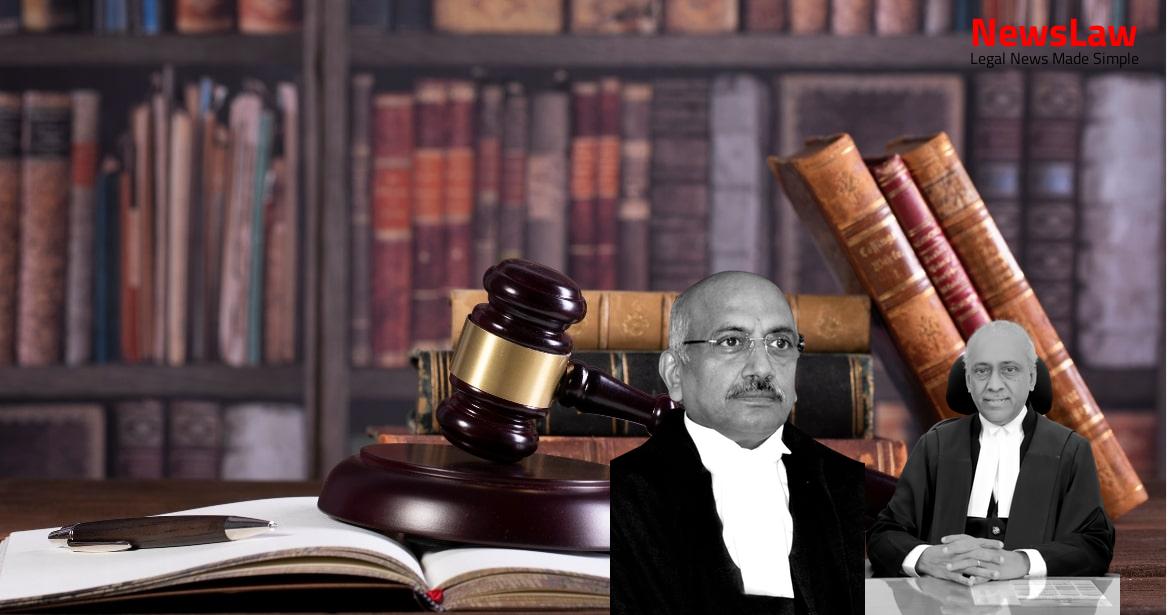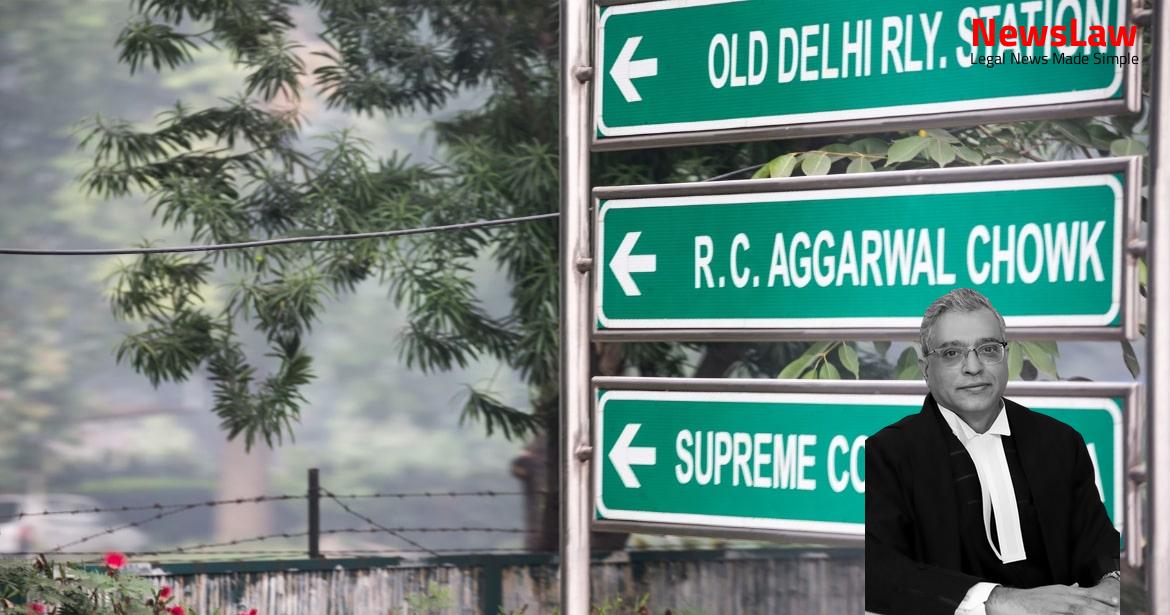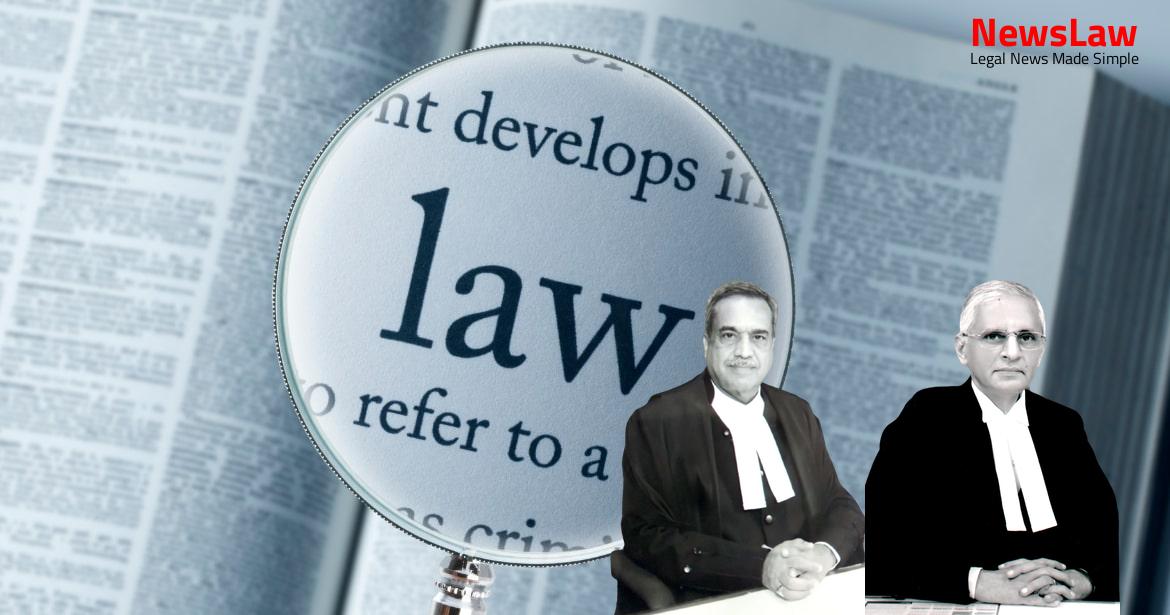In a significant legal development, the Supreme Court Of India has issued a judgment in the case involving the Board of Directors and the charged officer. The case revolves around the dismissal of the charged officer by the corporation and subsequent legal challenges. The High Court and the Tribunal’s decisions regarding the dismissal order have been under scrutiny. Stay tuned to learn more about the outcome of this complex legal battle.
Facts
- Delhi Transport Corporation (Corporation) filed an appeal against the judgment of the Delhi High Court.
- The appeal challenges the legality of the judgment passed by the Central Administrative Tribunal.
- The Tribunal accepted the Original Application filed by the charged officer and set aside the dismissal order issued by the CMD.
- The Enquiry Officer conducted an enquiry and found seven out of the eight charges proved against the charged officer.
- The charged officer filed OA No 1054 of 2009 challenging the show cause notice on the ground that the CMD was not the appointing or disciplinary authority.
- The Tribunal directed the Enquiry Authority to decide the competence issue first before proceeding to the case’s merits.
- An agenda was circulated to the Board of Directors regarding the show cause notice and potential dismissal of the charged officer before his retirement on 30 April, 2009.
- The action of the appellant-Corporation in dismissing the charged officer was criticized for lacking application of mind and being non-speaking, highlighting fatal shortcomings.
- The Board members approved the show cause notice and recommended dismissal of the charged officer, leading to his eventual dismissal by the CMD.
- The Tribunal’s judgment in favor of the charged officer was challenged by the appellant-Corporation, leading to the current appeal.
- The High Court dismissed the appellant-Corporation’s challenge to the Tribunal’s order, allowing the charged officer to make a representation against the show cause notice.
Also Read: Acquittal of Accused in Fabricated Kidnapping Case
Arguments
- The Board of Directors made an objective consideration of agenda item 6 with proper application of mind.
- The details of charges against the appellant were circulated among Board members for review.
- The Board members approved the show cause notice dated 15 April, 2009, after considering the agenda item.
- The proposed penalty of dismissal from services was also approved collectively by the Board members.
- The decision to impose the penalty was based on considering the entire material on record, including the reply of the charged officer.
- The respondent contended that the minutes of the meeting dated 29 April, 2009 showed a total lack of application of mind.
- He pointed out that the minutes did not contain any expression of opinion by the Board members on the merits of the matter.
- He argued that the resolution approving his dismissal from service was inherently flawed and in violation of the law.
- The respondent emphasized that the Tribunal rightfully interfered with the decision based on these grounds.
- He supported the High Court’s affirmation of the Tribunal’s decision and urged the Court to dismiss the appeal filed by the appellant-Corporation.
Also Read: The Case of Custodial Death: A Landmark Judgment by the Supreme Court of India
Analysis
- The prosecution did not produce any witnesses during the departmental enquiry, and the case was closed with the consent of the Presenting Officer.
- In a case of an ex parte enquiry, it is crucial for the department to present evidence of witnesses to substantiate charges against the employee.
- The documents marked by the department were presented as evidence, but they do not conclusively prove the guilt of the charged officer.
- The Board’s Resolution did not show an independent or objective application of mind towards the enquiry report or the case in question.
- The judgment of A.L. Kalra v. Project & Equipment Corporation of India Ltd. highlighted the importance of providing reasons for accepting an inquiry report and ensuring an unbiased decision-making process.
- The enquiry report did not mention any documents being admitted by the charged officer, raising doubts about the Committee of Management’s agreement with the inquiry officer’s findings.
- The Board failed to comply with the mandatory requirements of admitting documents or affording the charged officer an opportunity of hearing.
- The Disciplinary Authority must exhibit an independent application of mind to the findings in the enquiry report before imposing a major penalty like dismissal from service.
- No evidence was led on behalf of the department in the enquiry proceedings
- Enquiry report is based on no evidence whatsoever
- Tribunal committed no error in accepting the original application
- Division Bench of the High Court rightly refused to interfere in the Tribunal’s judgment
Also Read: Judgment Upholding Conviction: State of Punjab vs. Accused
Decision
- Appeal dismissed for lack of merit
- Pending applications disposed of
- No costs ordered
Case Title: DELHI TRANSPORT CORPORATION THROUGH ITS MANAGING DIRECTOR Vs. ASHOK KUMAR SHARMA (2024 INSC 564)
Case Number: C.A. No.-000290-000290 – 2014



